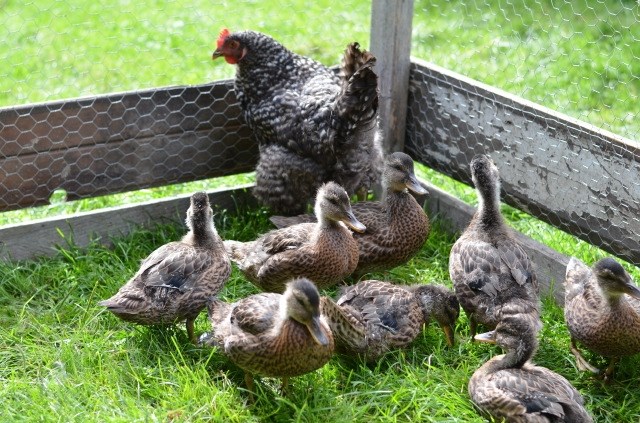
Backyard coops are a bear favourite.
Image Credit: FILE PHOTO
September 25, 2017 - 2:34 PM
OKANAGAN - To a hungry bear, nothing says go away like an electric shock to the nose or face.
And that’s what you need to deliver to keep one out of your apiary or chicken coop, Gillian Sanders says.
“It doesn’t hurt the bear, it’s safe around children and pets and it teaches the bear to avoid that area,” Sanders says. She will lead a pair of bear electric fencing workshops next month in Lake Country and Cherryville.
She’s successfully built over 200 electrified enclosures, developing her expertise starting with her own bees and expanding to include other “agricultural attractants” as Sanders terms them — the obvious ones like small livestock, chickens, fruit trees and berry patches but also corn fields and calving areas.
What makes her designs work is tailoring the electric fence — it employs an energizer that delivers at least 7,000-volt bursts — to the animal you want to keep out.
"You have to go for the nose or the face. A bear can rub his butt up against an electric fence and because the hair is so thick it might not reach the skin,” Sanders says. “These are specific for bears so it’s all about how the fence is installed.”
Key also is maintenance, Sanders says, ensuring the wiring is protected and does not start shoring and delivering lower voltage shocks.
Beyond the economic benefit of not losing whatever crop or livestock they are raising — an attack on an apiary can cost thousands of dollars —Sanders says small farmers and orchardists will gain the immediate benefit of a good night’s sleep.
“If a bear is killing chickens, if someone is staying up on the farm trying to scare them away or shoot them, they are not sleeping and it is very stressful,” Sanders says. “This will give them the confidence to sleep at night even if a known chicken-killer is in the area.”
Sanders says electric fencing may sound like tough love, but it will actually help bears in the short and long term by reducing deadly conflicts — the bears almost always lose — and helping ensure their biodiversity.
“If a bear gets sucked into a chicken coop and gets shot, it’s dead and it prevents genetic connectivity,” she adds.
While primarly aimed at small agricultural operations, Sanders says even those on the edge of communities with just a few fruit trees in their yards can benefit if bears have become a problem.
Sanders’ free workshop is sponsored by the provincial government through the Ministry of Rural Development.
Both workshops take place October 28. The Cherryville workshop is scheduled for 1 to 3 p.m. at the Cherryville community hall at 158 North Fork Road while the Lake Country workshop is scheduled for 7 to 9 p.m. at the Oceola Fish and Game Club, 11888 McGowan Road, Winfield.
For more information, contact Sanders at grizzlybearsolutions@gmail.com or call her at 250-353-1137.
To contact a reporter for this story, email John McDonald or call 250-808-0143 or email the editor. You can also submit photos, videos or news tips to the newsroom and be entered to win a monthly prize draw.
We welcome your comments and opinions on our stories but play nice. We won't censor or delete comments unless they contain off-topic statements or links, unnecessary vulgarity, false facts, spam or obviously fake profiles. If you have any concerns about what you see in comments, email the editor in the link above.
News from © iNFOnews, 2017